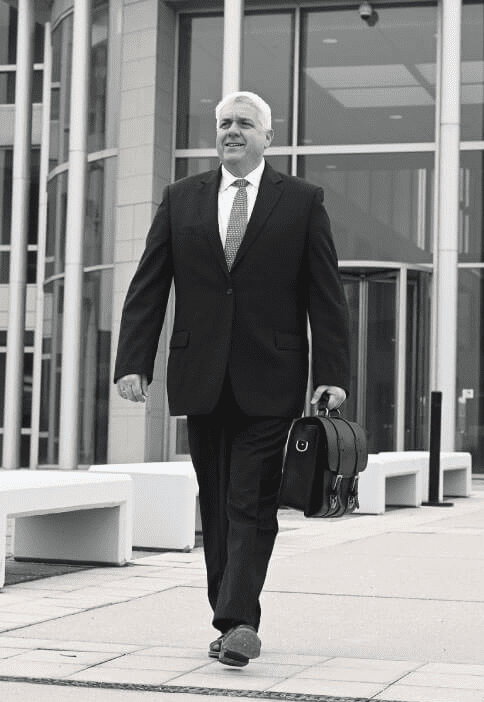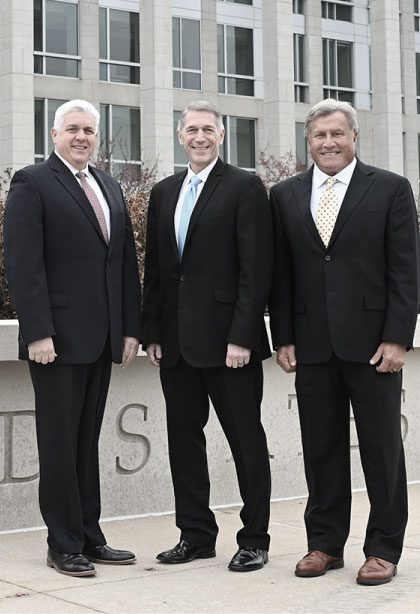After you experience a traumatic event like a car accident or a slip and fall, insurance adjusters don’t sound threatening. They sound friendly, helpful, and sympathetic. It might even feel good to talk to someone about what happened. But behind the small talk lies one goal: to get you to say something they can use against you. The wrong phrase, spoken in stress or politeness, could cost you thousands in compensation.
With 35 years of personal injury experience at Clark Frost Zucchi, we’ve seen firsthand how a single careless word can alter the outcome of a case. That’s why knowing what to avoid saying to insurers is just as important as knowing what to say. Here are five critical things you should avoid saying to safeguard your claim.
Don’t Say “I’m Fine” or Downplay Your Pain
Out of habit or politeness, many people instinctively respond with “I’m okay” when asked about their condition. Others worry about sounding dramatic, so they minimize their symptoms.
This seemingly innocent response can devastate your case. Insurance companies will seize on these statements to argue your injuries aren’t serious. That casual “I’m fine” you said while still in shock? It might be used months later to deny coverage for persistent back pain or emotional trauma.
What to do instead: Stick to the facts about your condition. Let your medical records document the full extent of your injuries rather than making statements you might regret.
Avoid Admitting Fault or Apologizing
Common phrases like “It was partly my fault,” “I should’ve been more careful,” or even “I’m sorry this happened” can seriously harm your case. Many people apologize reflexively after accidents, even when they did nothing wrong.
Insurance companies will use these statements to reduce or completely deny compensation. They’ll argue that your own admission proves you’re responsible for the accident, regardless of what actually occurred.
What to do instead: Share only factual details about what happened. Avoid opinions about fault or responsibility; let investigators and attorneys determine who’s liable based on evidence.
Don’t Speculate About What Happened
Phrases like “I think the other driver was speeding” or “Maybe I didn’t see them coming” may seem helpful, but they can be dangerous. When you’re still processing a traumatic event, your memory may not be completely accurate.
Speculative statements can undermine your credibility and create inconsistencies in your account. Insurance adjusters look for any contradictions they can exploit to question your version of events.
What to do instead: Only state what you know for certain. Describe the time, location, weather conditions, and other concrete facts you can verify.
Avoid Discussing Medical History Without Legal Guidance
Insurance companies often ask about prior injuries or medical conditions, hoping to blame your current pain on pre-existing issues. While you should be honest, volunteering detailed medical information without guidance can backfire.
Sharing too much information gives insurers grounds to argue your injuries aren’t accident-related. They might claim your back pain stems from an old sports injury rather than the recent collision.
What to do instead: Don’t discuss your medical history until you’ve consulted with a personal injury attorney who can advise you on what information is relevant and necessary.
Never Agree to Be Recorded or Sign Documents Without Review
Insurance companies often request recorded statements or ask you to sign forms, claiming it will speed up your claim. They may pressure you by suggesting that refusing to cooperate looks suspicious.
Recorded statements can be edited and taken out of context. Documents may contain language that waives important rights or limits your compensation. Once you’ve agreed, it’s nearly impossible to undo the damage.
What to do instead: Politely decline until you’ve had a chance to review everything with a personal injury attorney. A simple “I’d like to have my lawyer look at this first” protects your interests.
Protect Your Claim and Your Future
Your words carry significant weight in determining your financial recovery after an injury. Insurance companies have teams of professionals working to minimize what they pay you, but you don’t have to face them alone.
The attorneys at Clark Frost Zucchi understand the tactics of insurance companies and can handle all communications on your behalf. We’ll work to secure the full compensation you deserve while you focus on healing.
Don’t let a careless phrase jeopardize your recovery. Contact Clark Frost Zucchi today for a consultation and let us protect your rights from day one.














